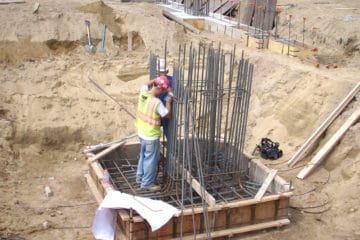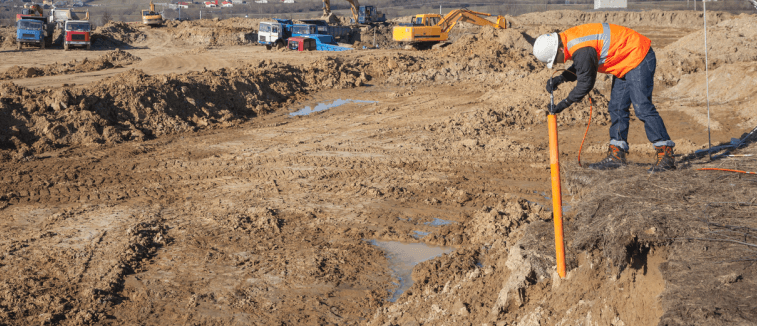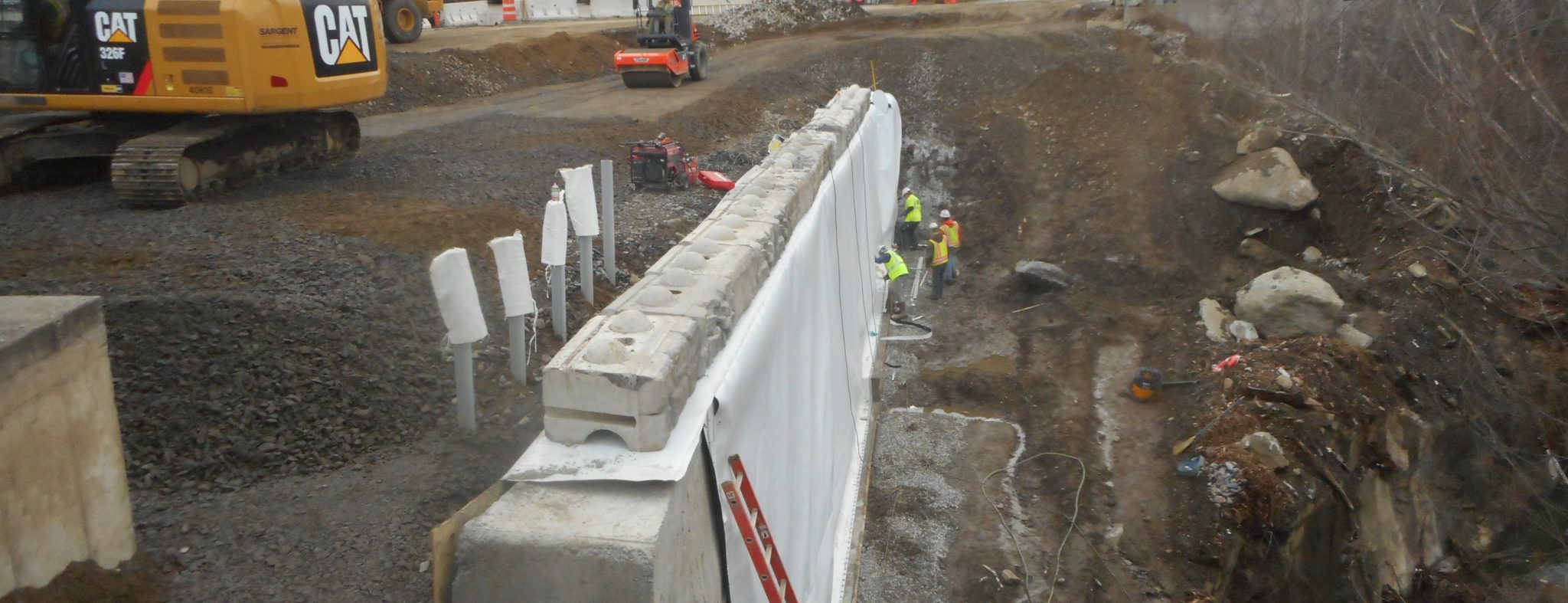Why Working With a Geo Tech Engineer is Essential for Complex Building And Construction Jobs
Why Working With a Geo Tech Engineer is Essential for Complex Building And Construction Jobs
Blog Article
Understanding the Important Duty of the Geotechnical Sector in Modern Building And Construction Projects and Framework Growth
The geotechnical market is a foundation of modern building and framework advancement, supplying critical understandings right into dirt actions that directly affect task end results. With innovative dirt analyses and ingenious engineering options, geotechnical specialists not just ensure structural integrity but additionally address sustainability problems amid progressing ecological requirements.
Importance of Dirt Assessment
Dirt analysis plays a vital duty in the geotechnical industry, acting as the structure for notified decision-making in building and construction projects. Exact soil assessment is crucial for identifying the suitability of a website for various kinds of structures, including domestic homes, industrial structures, and bridges. By analyzing soil structure, wetness, density, and strength web content, designers can prepare for potential difficulties and alleviate threats connected with ground instability, erosion, and negotiation.
The analysis process normally involves a collection of examinations and monitorings that offer crucial details concerning the subsurface problems. This information notifies the layout and building and construction procedures, ensuring that structures are improved strong ground with appropriate support. Understanding the soil profile allows engineers to select ideal building and construction approaches and products, enhancing source application and lessening expenses.
Along with guaranteeing architectural integrity, dirt assessment contributes to environmental sustainability. By determining possible contamination or unfavorable impacts on surrounding ecosystems, engineers can apply approaches to safeguard these natural resources. On the whole, complete soil evaluation is indispensable in the geotechnical area, underpinning the safety, performance, and ecological responsibility of building tasks.
Secret Geotechnical Methods
A variety of essential geotechnical methods are employed to analyze and improve the security and efficiency of construction websites. One foundational method is dirt tasting and testing, which enables engineers to establish the physical and chemical residential or commercial properties of the ground. This info is important for making notified choices regarding structure style and building approaches.
An additional vital technique is site characterization, which entails the comprehensive assessment of dirt and rock conditions via techniques such as borehole drilling and in-situ screening. Strategies like Requirement Penetration Examinations (SPT) and Cone Infiltration Examinations (CPT) give important information on soil toughness and stratigraphy.
Ground improvement techniques, such as dirt stabilization and grouting, are also vital in improving the load-bearing capability of weak dirts. These methods can minimize negotiation and improve general website conditions.
In addition, incline stability analysis is critical for recognizing potential landslide dangers and ensuring the safety of excavations. This evaluation often uses numerical modeling and limit stability methods to anticipate soil actions under different problems.
Including these geotechnical strategies right into building and construction preparation not just enhances job outcomes yet also ensures the lasting sustainability of facilities advancement.
Effect On Construction Safety

In addition, efficient geotechnical design includes implementing reduction approaches for recognized risks. This may include soil stabilization techniques, preserving frameworks, or drain systems to ease hydrostatic pressure. By attending to these factors, building teams can decrease the possibility of accidents and enhance worker security.
Furthermore, continual tracking of address website conditions is critical during building and construction. Geotechnical instruments can offer real-time information pertaining to ground activity and stability, permitting prompt treatments when necessary.
Fundamentally, the geotechnical market plays a critical function in safeguarding building and construction jobs. By focusing on ground stability and employing extensive analysis approaches, the geotechnical field not only safeguards the labor force but also adds to the longevity and reliability of built framework.
Sustainability in Geotechnical Practices

Additionally, geotechnical engineers are currently employing innovative innovations, such as geosynthetics, which boost dirt stability while lowering the quantity of product called for. This not just saves sources however likewise causes much less waste generation (engineer of record). The combination of sustainable style concepts into geotechnical design urges making use of renewable power sources in construction procedures, further decreasing carbon exhausts
Furthermore, comprehensive site analyses are vital for determining possible ecological effects before building begins. By performing these assessments, geotechnical specialists can establish techniques that reduce unfavorable impacts, making certain compliance with ecological policies. In general, the emphasis on sustainability within geotechnical techniques not just adds to the longevity and resilience of framework however also advertises a responsible technique to land and source management. This dedication is vital for fostering sustainable growth in the modern-day construction landscape.
Future Trends in Geotechnical Design
Innovation is driving the future of geotechnical design, as emerging modern technologies and methods reshape the market. The integration of sophisticated information analytics and expert system is readied to reinvent site examination and threat assessment, allowing engineers to make even more educated decisions based on real-time data. Furthermore, the use of geosynthetic materials is gaining grip, using lasting services that boost soil security and lower environmental influence.
An additional substantial trend is the adoption of automated and robotic systems for surveillance and building and construction processes. These technologies not just enhance precision yet also enhance safety Full Report and security by minimizing human participation in harmful settings. In addition, the execution of Building Info Modeling hop over to here (BIM) in geotechnical layout assists in boosted collaboration amongst stakeholders, maximizing job delivery and reducing expenses.
As climate change positions brand-new obstacles, the industry is increasingly concentrating on strength and versatility in style methods, making certain facilities can hold up against severe climate occasions. The continuous trend toward sustainability will drive development in eco-friendly products and methods, lining up geotechnical engineering with broader environmental objectives. Jointly, these trends will shape a more efficient, sustainable, and resistant geotechnical landscape for future projects.
Verdict

The geotechnical sector is a foundation of modern construction and facilities development, providing important understandings right into dirt habits that straight affect task end results. consulting engineer.Soil assessment plays an essential role in the geotechnical market, offering as the structure for notified decision-making in construction tasks. In general, comprehensive soil evaluation is essential in the geotechnical field, underpinning the safety and security, performance, and environmental duty of construction jobs
Building and construction security is dramatically influenced by geotechnical practices, as the stability and integrity of the ground straight impact the overall safety and security of a construction website.In verdict, the geotechnical industry is crucial in contemporary construction and infrastructure development, offering crucial assessments that make sure architectural integrity and safety.
Report this page